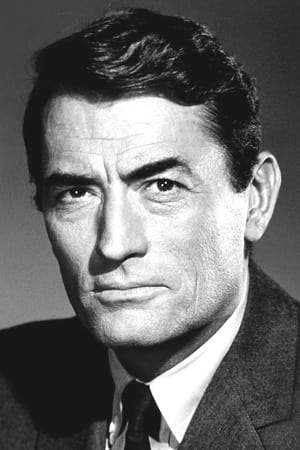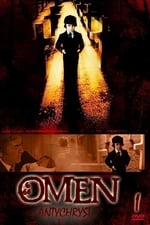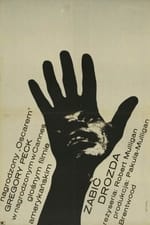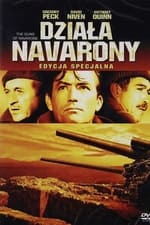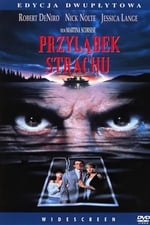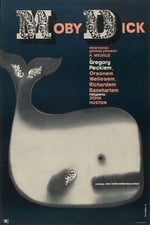Informations personnelles
Célèbre pour Interprétation
Apparitions connues 134
Genre Homme
Date de naissance 5 avril 1916
Date de décès 12 juin 2003 (87 ans)
Lieu de naissance La Jolla, California, USA
Alias
- Eldred Gregory Peck
- グレゴリー・ペック
- エルドレッド・グレゴリー・ペック
- Грегорі Пек
- گریگوری پک
Score de contenu
100
Superbe ! Cette fiche semble complète !
Connectez-vous afin de
signaler un problème.
Biographie
Eldred Gregory Peck (April 5, 1916 – June 12, 2003) was an American actor and one of the most popular film stars from the 1940s to the 1970s. In 1999, the American Film Institute named Peck the 12th-greatest male star of Classic Hollywood Cinema.
After studying at the Neighborhood Playhouse with Sanford Meisner, Peck began appearing in stage productions, acting in over 50 plays and three Broadway productions. He first gained critical success in The Keys of the Kingdom (1944), a John M. Stahl–directed drama which earned him his first Academy Award nomination. He starred in a series of successful films, including romantic-drama The Valley of Decision (1944), Alfred Hitchcock's Spellbound (1945), and family film The Yearling (1946). He encountered lukewarm commercial reviews at the end of the 1940s, his performances including The Paradine Case (1947) and The Great Sinner (1948). Peck reached global recognition in the 1950s and 1960s, appearing back-to-back in the book-to-film adaptation of Captain Horatio Hornblower (1951) and biblical drama David and Bathsheba (1951). He starred alongside Ava Gardner in The Snows of Kilimanjaro (1952) and Audrey Hepburn in Roman Holiday (1953), which earned Peck a Golden Globe award.
Other notable films in which he appeared include Moby Dick (1956, and its 1998 mini-series), The Guns of Navarone (1961), Cape Fear (1962, and its 1991 remake), The Omen (1976), and The Boys from Brazil (1978). Throughout his career, he often portrayed protagonists with "fiber" within a moral setting. Gentleman's Agreement (1947) centered on topics of antisemitism, while Peck's character in Twelve O'Clock High (1949) dealt with post-traumatic stress disorder during World War II. He won the Academy Award for Best Actor for his performance as Atticus Finch in To Kill a Mockingbird (1962), an adaptation of the modern classic of the same name which revolved around racial inequality, for which he received universal acclaim. In 1983, he starred opposite Christopher Plummer in The Scarlet and The Black as Hugh O'Flaherty, a Catholic priest who saved thousands of escaped Allied POWs and Jewish people in Rome during the Second World War.
Peck was also active in politics, challenging the House Un-American Activities Committee in 1947 and was regarded as a political opponent by President Richard Nixon. President Lyndon B. Johnson honored Peck with the Presidential Medal of Freedom in 1969 for his lifetime humanitarian efforts. Peck died in his sleep from bronchopneumonia at the age of 87.
Eldred Gregory Peck (April 5, 1916 – June 12, 2003) was an American actor and one of the most popular film stars from the 1940s to the 1970s. In 1999, the American Film Institute named Peck the 12th-greatest male star of Classic Hollywood Cinema.
After studying at the Neighborhood Playhouse with Sanford Meisner, Peck began appearing in stage productions, acting in over 50 plays and three Broadway productions. He first gained critical success in The Keys of the Kingdom (1944), a John M. Stahl–directed drama which earned him his first Academy Award nomination. He starred in a series of successful films, including romantic-drama The Valley of Decision (1944), Alfred Hitchcock's Spellbound (1945), and family film The Yearling (1946). He encountered lukewarm commercial reviews at the end of the 1940s, his performances including The Paradine Case (1947) and The Great Sinner (1948). Peck reached global recognition in the 1950s and 1960s, appearing back-to-back in the book-to-film adaptation of Captain Horatio Hornblower (1951) and biblical drama David and Bathsheba (1951). He starred alongside Ava Gardner in The Snows of Kilimanjaro (1952) and Audrey Hepburn in Roman Holiday (1953), which earned Peck a Golden Globe award.
Other notable films in which he appeared include Moby Dick (1956, and its 1998 mini-series), The Guns of Navarone (1961), Cape Fear (1962, and its 1991 remake), The Omen (1976), and The Boys from Brazil (1978). Throughout his career, he often portrayed protagonists with "fiber" within a moral setting. Gentleman's Agreement (1947) centered on topics of antisemitism, while Peck's character in Twelve O'Clock High (1949) dealt with post-traumatic stress disorder during World War II. He won the Academy Award for Best Actor for his performance as Atticus Finch in To Kill a Mockingbird (1962), an adaptation of the modern classic of the same name which revolved around racial inequality, for which he received universal acclaim. In 1983, he starred opposite Christopher Plummer in The Scarlet and The Black as Hugh O'Flaherty, a Catholic priest who saved thousands of escaped Allied POWs and Jewish people in Rome during the Second World War.
Peck was also active in politics, challenging the House Un-American Activities Committee in 1947 and was regarded as a political opponent by President Richard Nixon. President Lyndon B. Johnson honored Peck with the Presidential Medal of Freedom in 1969 for his lifetime humanitarian efforts. Peck died in his sleep from bronchopneumonia at the age of 87.
Interprétation
|
|||||||||||||||
|
|||||||||||||||
|
|||||||||||||||
|
|||||||||||||||
|
|||||||||||||||
|
|||||||||||||||
|
|||||||||||||||
|
|||||||||||||||
|
|||||||||||||||
|
|||||||||||||||
|
|||||||||||||||
|
|||||||||||||||
|
|||||||||||||||
|
|||||||||||||||
|
|||||||||||||||
|
|||||||||||||||
|
|||||||||||||||
|
|||||||||||||||
|
|||||||||||||||
|
|||||||||||||||
|
|||||||||||||||
|
|||||||||||||||
|
|||||||||||||||
|
|||||||||||||||
|
|||||||||||||||
|
|||||||||||||||
|
|||||||||||||||
|
|||||||||||||||
|
|||||||||||||||
|
|||||||||||||||
|
|||||||||||||||
|
|||||||||||||||
|
|||||||||||||||
|
|||||||||||||||
|
|||||||||||||||
|
|||||||||||||||
|
|||||||||||||||
|
|||||||||||||||
|
|||||||||||||||
|
|||||||||||||||
|
|||||||||||||||
|
|||||||||||||||
|
|||||||||||||||
|
|||||||||||||||
|
|||||||||||||||
|
|||||||||||||||
|
|||||||||||||||
|
|||||||||||||||
|
|||||||||||||||
|
|||||||||||||||
|
|||||||||||||||
|
|||||||||||||||
|
|||||||||||||||
|
|||||||||||||||
|
|||||||||||||||
|
|||||||||||||||
|
Production
|
|||
|
|||
|
|||
|
|||
|
|||
|
|||
|
|||
|
